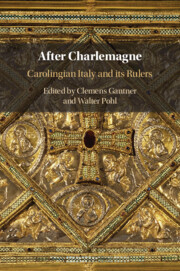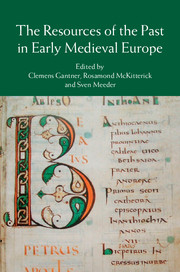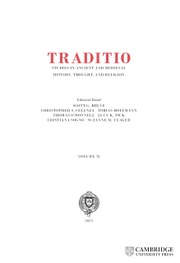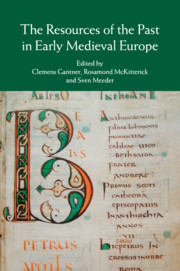After Charlemagne
After Charlemagne's death in 814, Italy was ruled by a succession of kings and emperors, all of whom could claim some relation to the Carolingians, some via the female line of succession. This study offers new perspectives on the fascinating but neglected period of Italy in the ninth century and the impact of Carolingian culture. Bringing together some of the foremost scholars on early medieval Italy, After Charlemagne offers the first comprehensive overview of the period, and also presents new research on Italian politics, culture, society and economy, from the death of Charlemagne to the assassination of Berengar I in 924. Revealing Italy as a multifaceted peninsula, the authors address the governance and expansion of Carolingian Italy, examining relations with the other Carolingian kingdoms, as well as those with the Italian South, the Papacy and the Byzantine Empire. Exploring topics on a regional and local level as well as presenting a 'big picture' of the Italian or Lombard kingdom, this volume provides new and exciting answers to the central question: How Carolingian was 'Carolingian Italy'?
- Offers a comprehensive and accessible history of ninth-century Italy in English
- Brings together a wide range of international experts and presents their cutting-edge research
- Emphasises the diversity of the Italian peninsula, exploring topics at a regional level as well as within the broader Italian or international context
Reviews & endorsements
‘This collection of papers by leading international experts gives access to the immense cultural productivity and textual richness of Carolingian Italy, to its manifold regional traditions and to its continuous openness to external influence.’ Stefan Esders, Freie Universität Berlin
‘Gantner and Pohl have assembled a star-studded international cast to investigate the distinctiveness of ninth-century Italy. In challenging the very notion of ‘Carolingian’ Italy’, this book offers rigorous and stimulating new interpretations of the narrative, documentary and manuscript sources concerning the politics, society and culture of Italy under Carolingian rule.’ Rosamond McKitterick, University of Cambridge
‘In the rich historiography on the Carolingians, less attention has in the past been paid to Italy; but now high-quality work is being done. This book brings that work together exceptionally well. It assembles the major experts on Carolingian Italy, and shows an exciting range of new approaches. All early medievalists will need to read it.’ Chris Wickham, University of Oxford
‘Highly recommended.’ G. I. Halfond, Choice
‘… the volume implements a series of well-documented research studies using various sources and methodologies, and is able to offer a unanimous answer to the question: a Carolingian Italy did indeed exist …’ Julia Zornetta, Quellen und Forschungen aus italienischen Archiven und Bibliotheken
Product details
December 2020Adobe eBook Reader
9781108894654
0 pages
This ISBN is for an eBook version which is distributed on our behalf by a third party.
Table of Contents
- 1. Italy after Charlemagne: scope and aims of the volume Clemens Gantner and Walter Pohl
- 2. A brief introduction to Italian political history until 875 Clemens Gantner
- Part I. Was There a Carolingian Italy?:
- 3. Talking about the Carolingians in eighth- and ninth-century Italy Thomas F. X. Noble
- 4. The name of the kingdom Paolo Delogu
- 5. Was there a Carolingian Italy? Politics, institutions and book culture François Bougard
- Part II. Organizing Italy:
- 6. The government of a peripheral area: the Carolingians and north-eastern Italy Stefano Gasparri
- 7. Vassals without feudalism in Carolingian Italy Giuseppe Albertoni
- 8. Shaping a kingdom: the sees of Parma and Arezzo between the reigns of Louis II and Berengar Igor Santos Salazar
- Part III. Carolingian Rulers:
- 9. Staying Lombard while becoming Carolingian? Italy under King Pippin Marco Stoffella
- 10. Carolingian fathers and sons in Italy: Lothar I and Louis II's successful partnership Elina Screen
- 11. A king in training? Louis II of Italy and his expedition to Rome in 844 Clemens Gantner
- Part IV. Cities, Courts and Carolingians:
- 12. A Byzantine cuckoo in the Frankish nest? The Exarchate of Ravenna and the Kingdom of Italy in the long ninth century Tom Brown
- 13. Urbanism as politics in ninth-century Italy Caroline Goodson
- 14. Rome and the others: saints, relics and hagiography in Carolingian north-eastern Italy Francesco Veronese
- 15. Between the palace, the school and the forum: rhetoric and court culture in late Lombard and Carolingian Italy Giorgia Vocino
- Bibliography.





.jpg)
.jpg)

